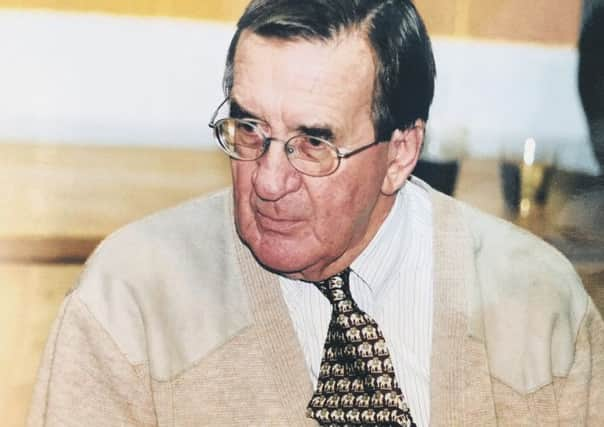Bryan Barker


He was the younger son of William A Barker, managing director of the Whitby Gazette, and his wife Edith (nee Bryan).
From the Grammar School he went on in 1952 to Birmingham University, where he graduated in English before beginning his teaching career at the Regis School, Tettenhall, Wolverhampton.
Advertisement
Hide AdAdvertisement
Hide AdIn 1963 he moved to Hull as head of English at the High School for Commerce, and in 1965 took a similar position at the Hereford School at Grimsby, Lincolnshire.
After a spell working in East Suffolk as a secondary school advisor, Mr Barker was appointed to his first headship in 1973 at Gunfleet School, Frinton-on-Sea, Essex. When Gunfleet was merged, he became first headmaster of the newly-formed joint body, Tendring High School, which occupied two sites about five miles apart.
His return to Whitby came in 1984. Quietly spoken, and a firm but fair disciplinarian, he drew the school forward into the mainstream of secondary education, and established links with the community in his home town. He became a church warden at St Mary’s Parish Church, having acquired a strong Christian faith in his childhood when he worshipped with his family at St Ninian’s in Baxtergate, Whitby.
Another strand to his life owed to St Ninian’s was choral singing, for like his father, mother and other relatives, he was a member of the church choir, and also won prizes as a schoolboy at the Eskdale Tournament of Song. During his time at Hull he sang with the East Riding County Choir, and later joined choirs at Grimsby and Clacton-on-Sea.
Advertisement
Hide AdAdvertisement
Hide AdAfter retiring in 1993, Mr Barker undertook social work with the Network organisation and Tees Valley Housing Association. He carried out inspections of Church of England primary schools for the Diocese of York, and made yet another return to his old school, this time as an emergency governor, at a stage when it was in difficulty.
Latterly he had been debilitated by Parkinson’s disease, which he referred to wryly in the third person, as if it were an eccentric guest that had outstayed its welcome. He was often helped by nurses and others carers, and he found that many were ex-pupils who held him in affection. This surprised him, but not his friends.
His interest in his old school was undiminished. Only days before his death, he delivered a cogent and vigorous argument against the changes proposed, including a new name, Caedmon College.
At Birmingham University he had met, and in 1957 married, Rosalin (nee Dunkeld), who also graduated in English and became a dedicated historian. Like her husband, she made an important contribution to his old home town when they settled there, first in Ruswarp Lane and latterly in Blenheim Avenue. Her authoritative and painstakingly researched books have added vast new insights to the story of Whitby’s past, and are much admired by fellow local historians.
Advertisement
Hide AdAdvertisement
Hide AdShe survives him, along with their children Alison and Ian, and a granddaughter, Gemma, and his elder brother, Arthur G Barker. His funeral will be at St Mary’s Parish Church, Whitby, on Monday, July 14, at 11am.